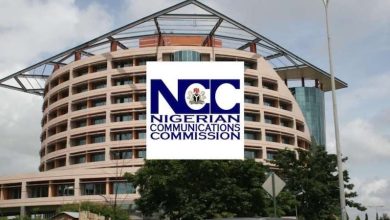Senate Advances Bill to Amend Electricity Act, Criminalize Vandalism and Rescue Power Sector
The Senate has advanced a key bill aimed at fixing Nigeria’s troubled electricity sector.
The proposed changes seek to cut vandalism, boost investor confidence, and protect consumers.
The Nigerian Senate has taken a significant step toward overhauling the nation’s power sector by passing the Electricity Act (Amendment) Bill, 2025 for its second reading. The bill introduces 28 proposed amendments aimed at stabilizing and reforming the electricity industry.
Sponsored by Senator Enyinnaya Abaribe (Abia South), the bill is viewed as a crucial intervention to address the profound legal, financial, and operational challenges facing the Nigerian Electricity Supply Industry (NESI).
Leading the debate during plenary on Tuesday, Abaribe described the Nigerian power sector as being on the brink of collapse, citing a crippling debt crisis running into trillions of naira and a growing burden of operational inefficiencies.
“The current state of the NESI has been an issue of concern to this 10th Senate and even previous ones. The system is hanging on a cliff and requires immediate and drastic action,” Abaribe said.
The amendments target long-standing issues that have arisen since the implementation of the Electricity Act 2023, including overlapping regulatory powers between federal and state authorities, a lack of investor confidence, inadequate consumer protection, and weak infrastructure security.
The bill introduces sweeping changes across several areas of the principal act, including:
- The criminalization of electricity infrastructure vandalism is a persistent challenge responsible for frequent power disruptions and costly repairs nationwide.
- Improved regulatory coordination between national and sub-national bodies to prevent jurisdictional clashes and streamline enforcement.
- Clear guidelines for transitioning regulatory authority to states, in line with the constitutional reform that decentralized power sector governance.
- Establishment of a Forum of Electricity Regulators and formal recognition of the National Electric Power Policy Council to foster collaboration and standard-setting among sector players.
- Redefinition of the Power Consumer Assistance Fund (PCAF) to support low-income consumers while phasing out the current unsustainable electricity subsidy regime.
- Legal framework for host community relations and licensee responsibilities to promote equity and local participation.
- Clarification of industrial relations protocols to ensure a balance between workers’ rights and the provision of electricity as an essential service.
Abaribe noted that Clauses 2 to 12 of the bill focus on eliminating ambiguities and streamlining implementation, while Clauses 13 to 17 propose reforms to sectoral agencies such as the National Hydro Power Producing Areas Development Commission (N-HYPPADEC) and the Nigerian Electricity Management Services Agency (NEMSA).
The lawmaker assured his colleagues that the amendments would not impose additional financial obligations on the federal government.
“There’s no financial compendium attached to this bill, in compliance with Senate Standing Orders,” he stated, underscoring that the reforms are regulatory and structural rather than budgetary.
He described the legislation as a critical support mechanism for President Tinubu’s broader economic and energy reform agenda, offering a pathway to restore investor confidence and improve service delivery.
The bill received broad support across party lines. Senators Adamu Aliero, Osita Ngwu, Yinus Akintunde, and Fatai Buhari all praised the amendment as timely and necessary to stabilize Nigeria’s floundering electricity market.
However, Senator Solomon Adeola (Ogun West) advised caution, urging the Senate to engage more deeply with the executive for a comprehensive and harmonized restructuring of the sector.
Following deliberation, the Senate passed the bill for a second reading and referred it to the Senate Committee on Power for further legislative scrutiny.
The amendment comes as Nigeria continues to grapple with widespread electricity shortages, high tariff disputes, and repeated national grid collapses. Although the Electricity Act 2023 was hailed as a landmark reform, especially for decentralizing power regulation to the states, gaps in implementation and enforcement have emerged, prompting calls for further legislative action.
With this new bill, lawmakers aim to tighten loopholes, promote regulatory clarity, and create a conducive environment for private investment while also ensuring ordinary Nigerians are protected from blackouts, extortion, and the vandalism of national assets.



